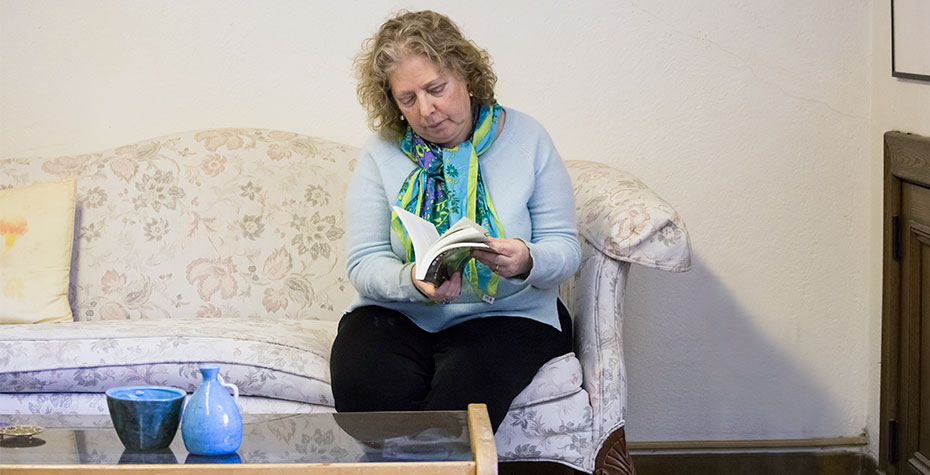Prizewinning Novel for Young Readers Celebrates Resilience and Activism

Marjorie Agosín, the Luella LaMer Slaner Professor in Latin American Studies and professor of Spanish, was thrilled to learn that her first novel for young readers had won the 2015 Pura Belpré Author Award for outstanding children’s literature by a Latino/Latina author. “When I received the phone call, I was really speechless,” she says. “Pura Belpré was a wonderful model for children, and as the first Latina librarian at the New York Public Library, she brought so much passion and dedication to helping Latino children be proud of their culture and heritage.”
The same can be said of Agosín, an acclaimed Chilean-American poet who understands the power of remembrance. Her novel, I Lived on Butterfly Hill, draws on history and her own childhood memories of Valparaíso, Chile, to tell the story of sixth-grader Celeste Marconi. Celeste is sent to live with an aunt in Maine when a ruthless dictator takes control of Chile. Three years later, she returns to reunite with her parents and to help her homeland heal.
Both readers and critics have praised Agosín’s poetic eye and the book’s courageous protagonist. As Tim Wadham, chair of the Pura Belpré Award Committee, said, “Though she is a refugee, Celeste learns she belongs anywhere there are things she loves.”
For Agosín, that message is crucial, because “the majority of the world’s refugees are children,” she says. “I believe they have an important social and political voice that we often do not hear.”
Agosín’s desire to write for children began in the early 1970s, when her family fled their home in Valparaíso after Augusto Pinochet’s military coup. She sees parallels between poetry and children’s fiction, both of which use intuitive and lyrical language to convey emotional truth.
Children understand poetry, she explains, which for them is a magical way of thinking. Children also understand the power of stories, even when those stories are difficult to tell.
Agosín urges readers of all ages to find their voices and to claim their past. “In order to understand who we are and to not lose our sense of self, we need to preserve memories,” she says. “Memories are spaces of refuge.”
As a descendant of Austrian Jews who perished in the Holocaust, Agosín feels she has a duty every day to remember those who were lost. She is currently in Vienna, searching for information about family members who emigrated from Austria to Chile in search of a new life. She will also give two lectures about her work—essays, memoir, and criticism—and how her connection to the city informs her pursuit of human rights.
“Everyone should pursue social justice,” she says. “Celeste embarks on this journey and provides an example for us all.”
Now, with the Pura Belpré Award to her credit, Agosín hopes to expand people’s perceptions of what Latino/Latina literature can be. “It’s not only about poverty or migrant workers,” she says. “It’s about the indomitable human spirit. We must not fear hardship or sorrows, as we can only emerge stronger and safer.”
—I Lived on Butterfly Hill was also recently featured in the Boston Globe. The book was illustrated by Lee White and translated from the Spanish by E.M. O'Connor, visiting lecturer in the Spanish Department.
